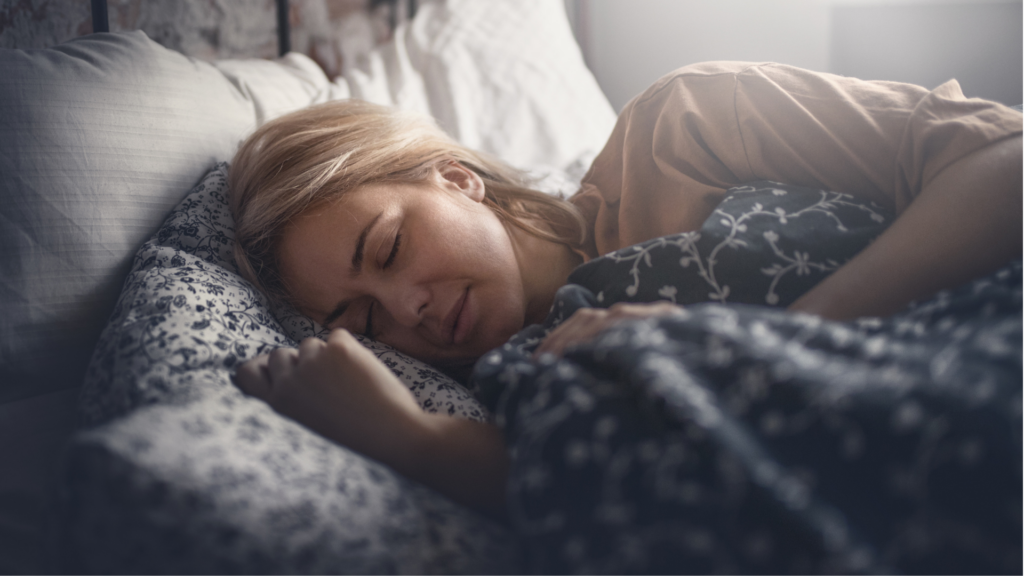Your body has a 24-hour internal clock that controls when you sleep and when you are awake. The name of this internal clock is your circadian rhythm. But with today’s busy lifestyle that clock has gotten off balance for many. And this impacts their sleep and ultimately, their health. Circadian rhythm problems can cause someone to get less sleep than their body needs. People who are extreme night owls often have circadian rhythm problems. But others who go to sleep too early may experience problems as well.
What are the signs of Circadian rhythm problems?
Anyone can be affected by an imbalance in the circadian rhythm. But people who do shift work, who have poor sleep hygiene, and who are older often experience circadian rhythm issues the most.
Some of the most common signs of Circadian rhythm issues include:
- Difficulty falling asleep or staying asleep.
- Poor performance at work or school.
- Being too sleepy during the day.
- Stress in relationships.
- Being unable to meet social obligations.
- Having a difficult time waking up in the morning.
- Depression
If you regularly experience symptoms, it may be time to reset your circadian rhythm.
Sleep needs to be a priority
Often times a busy schedule causes people to sacrifice time in other areas. Many people view sleep as expendable. They willingly sacrifice sleep without giving it much thought. It is far easier to go to bed later or wake up earlier than to admit that there isn’t enough time to do it all. Some even brag about their ability to “burn the candle at both ends” as if it were a symbol of strength.
But lack of sleep is a nightmare for your health! In the short term, a lack of adequate sleep can affect judgment, mood, ability to learn and retain information. And it may increase the risk of serious accidents and injury. However, the bigger, lesser-known nightmare is the cumulative effect of chronic sleep deprivation. Skimping on sleep can lead to a variety of health problems including obesity, diabetes, autoimmune disease, cardiovascular disease, digestive issues, and early death.
Sleeping is a productive activity
Each day your brain takes in thousands of pieces of new information. Consciously and subconsciously, the brain acquires data, learns new skills, and forms memories. When you go to sleep, your brain goes into organization mode. It begins sorting and integrating all of that information for easy access. Without this clean-up process, the disorganized brain becomes polluted with information and cellular clutter. This causes malfunctions in the body. These typically occur in the body as a decline in immune function, an increase in cortisol levels, hormonal and blood sugar imbalances, weight gain, and inflammation.
Sleep is a major part of the holistic protocol we use with clients at FDNthrive for a reason. Your body simply cannot return to excellent health if you aren’t getting enough sleep! But you can reset your circadian rhythm and get your internal clock functioning the way it should. That’ll allow you to sleep better! And that is good for your health!
What can I do to reset my internal clock?
Get out in the sunshine
Between the hours of 6 -8 a.m., cortisol is at its highest. This surge of morning cortisol is what turns on the brain and body. Morning sunlight exposure can maximize the waking effect of this cortisol release, helping to reset the circadian rhythm, naturally influencing cortisol levels to decline as the day progresses.
Spend a weekend in nature
A small study by the University of Colorado at Boulder showed that spending a weekend in nature could help restore balance to the sleep cycle. The natural cycle of darkness and light, combined with being away from the artificial light from our phones and other gadgets allowed the Circadian rhythm to be reset. In the study, the camper’s internal clock synched with the sun.
Have a regular sleep routine
Make it a point to start winding down about 1-2 hours before bed. Turn off your television, turn off your computer, and turn off your phone. Dim the lights and curl up on the couch with a good book, avoiding digital books and opting for a physical book instead. Or spend some time journaling or creating a to-do list for the next day. The goal is to do something that quiets the mind to prepare you for sleep.
Limit caffeine to morning only
To avoid sleep disruption, stick to drinking caffeinated beverages during the morning hours only. Taper caffeine consumption as the day goes on. Limit oversized caffeinated drinks, which contain unhealthy levels of caffeine. Keep yourself to no more than two 8 oz. cups daily.
Forget the nap
If you’re sleepy mid-afternoon it might be tempting to catch a quick nap. But this can throw off your internal clock. Skip the nap and help to keep yourself awake by getting out into the bright sunlight for a while. Then get to bed that evening at a reasonable time.
Shut off those gadgets before bed
The pineal gland in the brain receives information about the daylight from your optic nerve. This information helps to prepare your body for bed by releasing melatonin when it begins getting dark at sunset. Within one to two hours after sunset, you should naturally feel sleepy as melatonin levels rise.
Blue light disrupts natural melatonin production. It signals to your brain that it is still daytime. As little as five minutes of staring at your iPhone, TV, or tablet can shut off this important sleep hormone. And it will make it difficult for you to get to sleep. Screens should be avoided 1-2 hours before bed.
Optimize your bedroom for good sleep
Is your bedroom set up for good sleep? The temperature of your room can impact sleep quality. Most people find 65-72 degrees to be the most comfortable temperature for sleep. If there is too much light coming into your room from the windows or even from a digital clock, it may affect your sleep. Blackout curtains can keep sunlight from your room. You can also wear a sleep mask to help reduce light. Unwanted noise can also keep you awake. White noise can lessen external sounds. A good pair of earplugs can help drown out a snoring spouse. Make sure you are using a comfortable mattress and pillow as well. If they are uncomfortable, you may find yourself tossing and turning. Optimizing sleep can help you optimize your health!
Get regular exercise, but not in the evening
Get some physical activity in the morning when energy levels tend to be higher. You will enjoy an improved ability to focus and handle stress during the workday. And it’ll help you sleep better at night.
Doing simple things to help reset your internal clock can ultimately benefit your health. If you are ready to commit to rebuilding your health and would like additional help, contact us today to see if our program is right for you!







